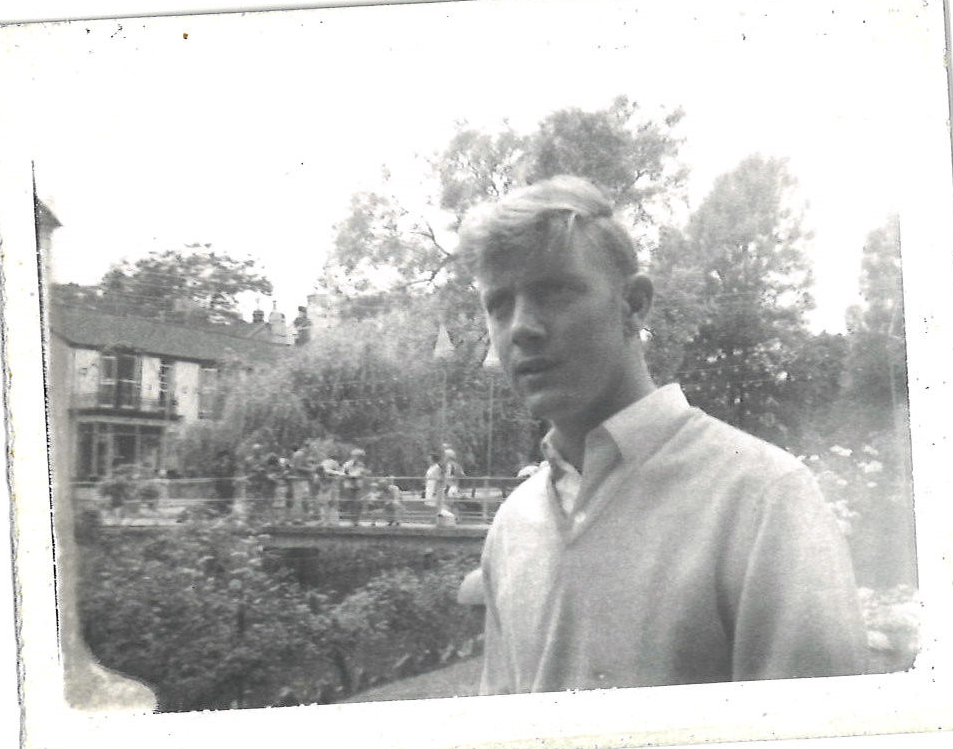The Beginning
It was March 1964. Barrie Pearce, a nineteen-year-old living in Plumstead at the time, was at home with his mum and two older brothers. Ken and John decided to go down to Plough Lane to watch the Wimbledon Dons in the Friday Easter Cup Speedway fixture. Barrie's mum didn't want him moping around the house all day while his brothers were out, so she convinced him to go with them to watch the Speedway.
Wimbledon was at home to the Coventry Bees in the Easter Challenge Cup. The Dons battled valiantly, but the Bees, lead by Nigel Boocok and an outstanding maximum from Ron Mountford, beat the Dons 44-40. The match went to a last heat decider, but Ken McKinley and Ron Mountford scored a 5-1 over Roy Trigg and Sverre Harrfeldt to secure victory. The match was tense; the smell was exhilarating, the racing was exciting, Barrie was hooked. He went back the following week to see Wimbledon take on and comfortably despatch the Belle Vue aces 49-35. He ventured to West Ham the next day to see the Don take on the Hammers in a challenge. West Ham won comfortably despite the 14 point haul from Dons number 5 Olle Nygren. The Hammers number 1, Bjorn Knutsson, went through the card unbeaten in the 46-38 victory. The seed had been sewn, the scene set: little did they know it, but Barrie's family had put wheels in motion on an obsession with Speedway which would stay with him for the rest of his life.
It wasn't long until he began to travel further afield than London for his fix. His first trip outside the Captial was to Coventry, where Bees took on Wimbledon in the National League. It was a terrific encounter, the Dons trailed by 6 points after ten races, but two successive 5-1's for the Londoners took them into the lead, and a 3-3 in heat 13 set up the last heat decider with Dons leading by 2. Coventry hit back with a 4-2 in heat 14, Nigel Boocock won the race, but Gote Nordin got the better of Bees reserve Les Owen to secure a draw. Speaking to Barrie in later years, he said he did have a soft spot for Wimbledon, although his love of the sport was more neutral and would much prefer a cracking match than an emphatic Dons victory; that said, he would, of course, be cheering if Wimbledon won! By the end of 1964, he had attended 46 matches, including the World Championship Series at West Ham. The tally mainly consisted of the London tracks, Hackney, West Ham, Wimbledon and Rye House. Aside from his trip to Coventry, he did travel to Swindon for the World Championship Qualifier.
He probably didn't realise it at the time, but he had come into the sport just as reform was taking place. The old top flight known as the National League, and the Provincial League would make way for an all new British League contest between 18 teams. Despite regular high finishes in the laeague top flight stalwalts Norwich had made their final appearance after 13 consecutive seasons in the top flight and 22 total years in the speedway league, before and after the second world war. The Firs Stadium would be used for a few training sessions in 1965 but was sold for housing development and closed it's doors forever. Middlesborough also closed its doors after four years at the wrong end of the second division table and the team moved to Halifax, although Speedway would continue through challenge matches and league racing would return to Cleveland bike in 1968.
Speedway had become something far more critical to my Dad than a simple hobby. Describing it as an obsession doesn't to it justice either. When you speak to someone who doesn't follow Football about a particular match, league or outcome, you'll often hear the phrase 'it's just a game'. I can understand why you might think that the sport in its purity might be a game, but it means something far more profound to the ardent fan. In the same way, a person walking in the street might be a stranger to you; that person is someone else's Dad, Brother, Sister or Mother. If they were to disappear tomorrow, it wouldn't mean anything to you per se, but to the people that know them, it's devastating. 600'000 people die every year in the U.K.; it's a general static but doesn't mean anything on its own. If you then think about every person in that year had a family who went through emotional anguish and pain associated with it, suddenly that statistic means something more. Our emotional connection to people, places, and moments makes them unique; Dad's emotional connection to Speedway was life-changing. To the casual observer, it was just a sport; to him, it was life.

